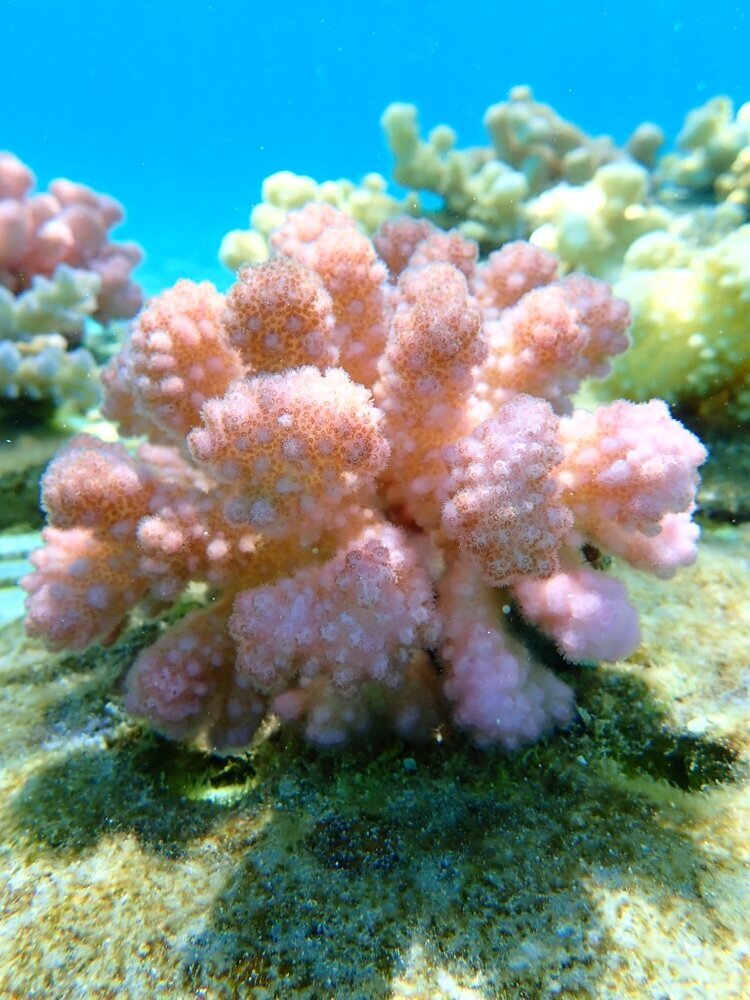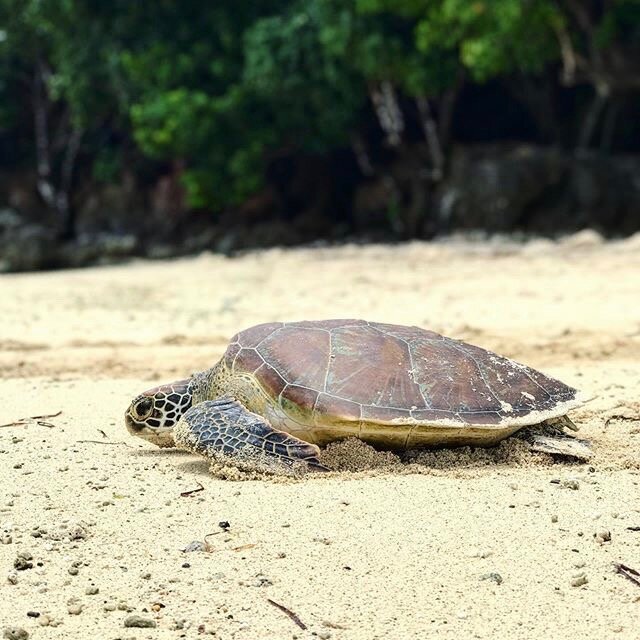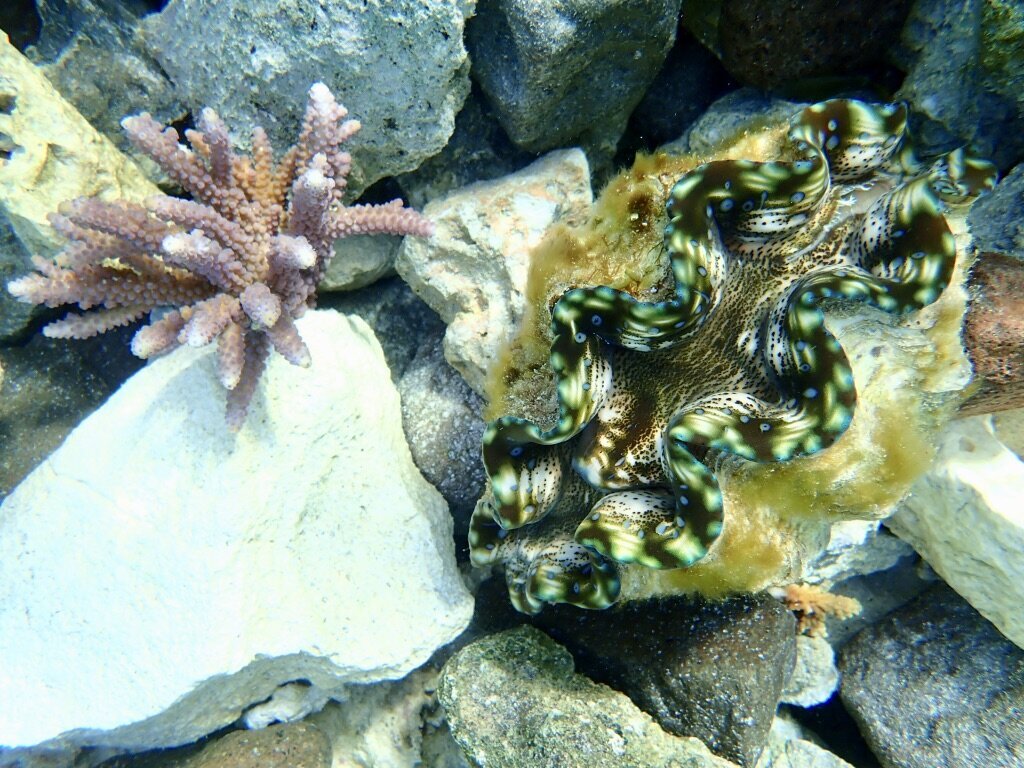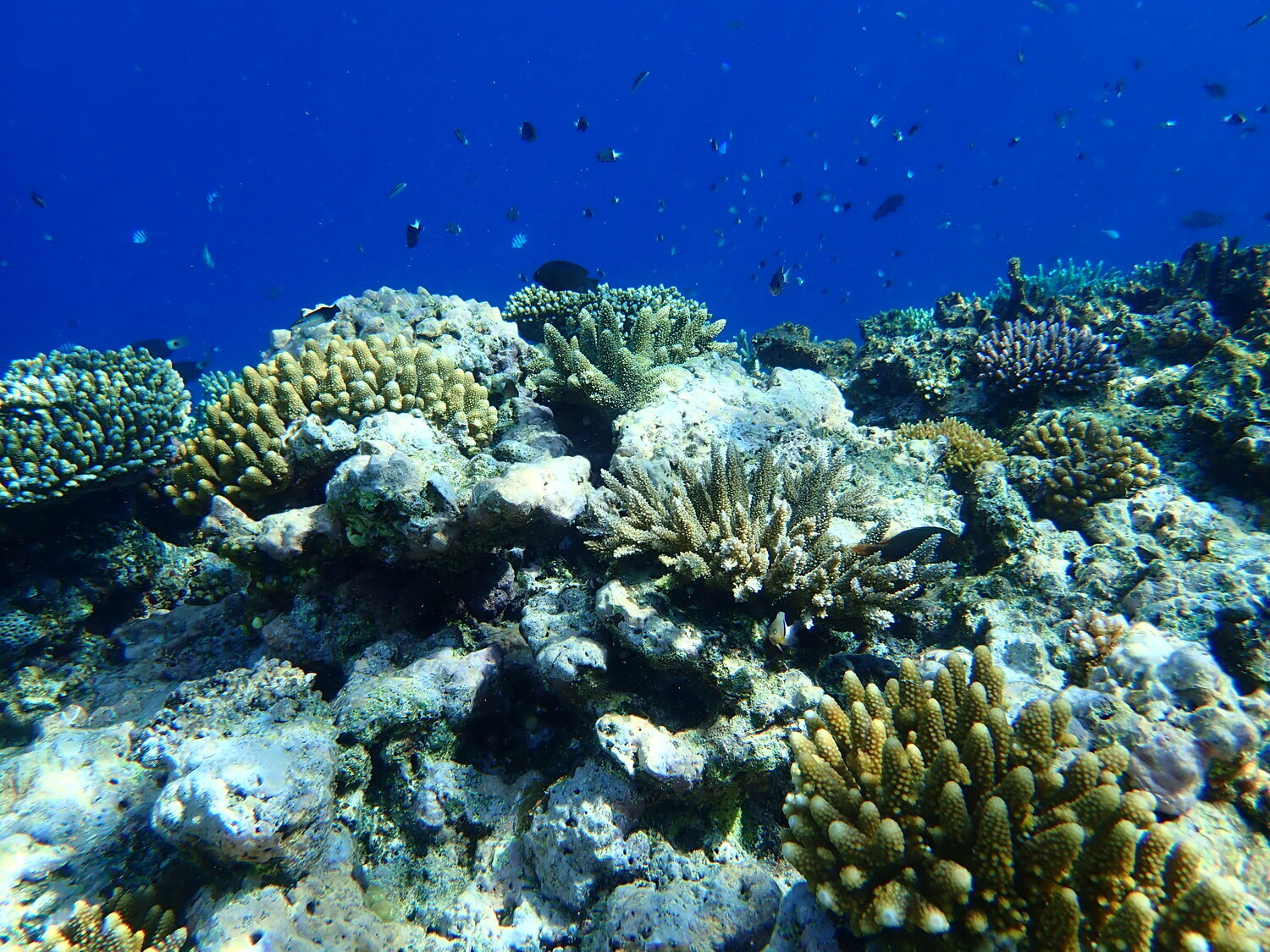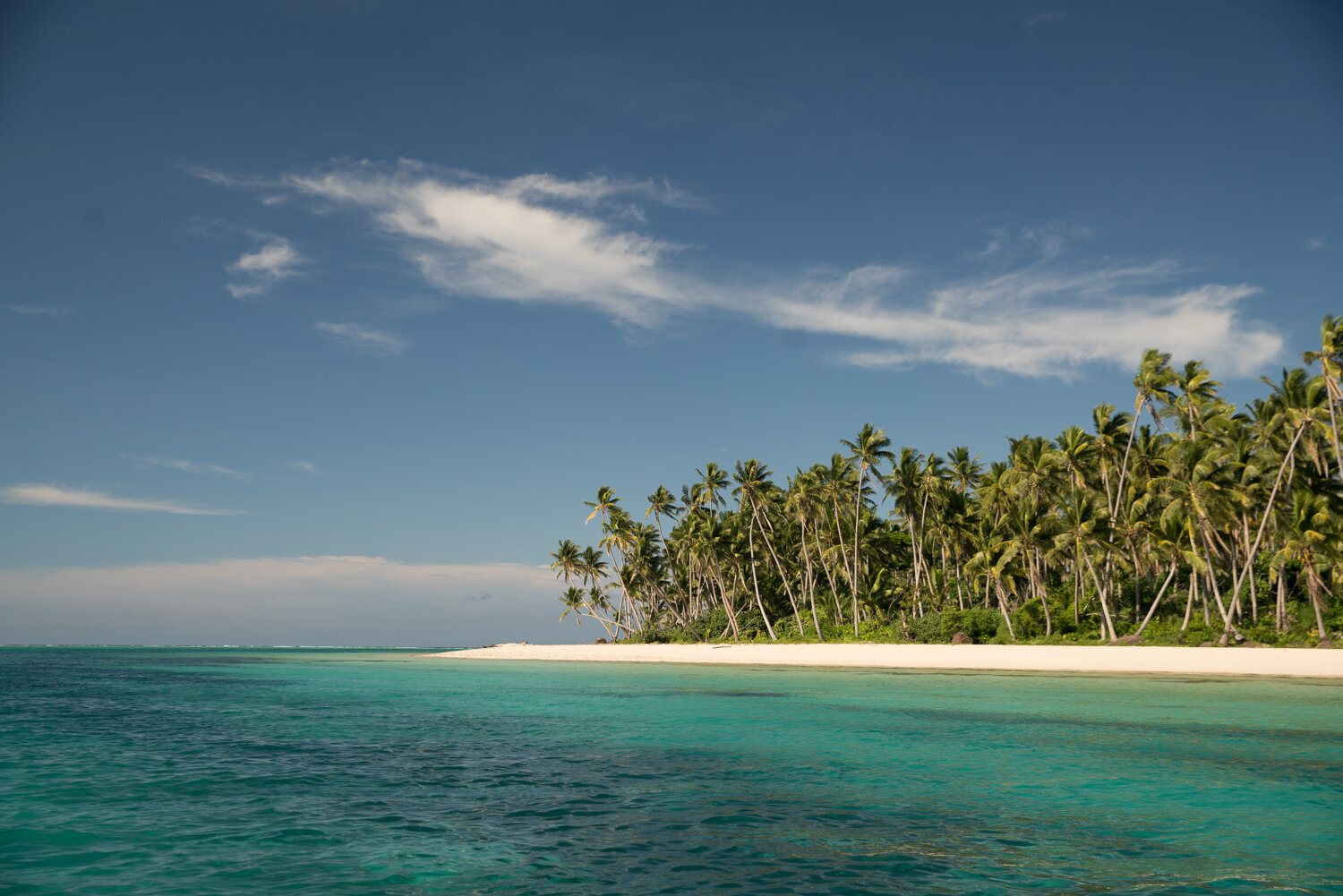International Day of Women and Girls in Science
A conversation about Women in Science between Vatuvara Foundation’s Director, Katy Miller and Vatuvara Foundation’s Marine Scientist Tyler Rae Chung
The International Day of Women and Girls in Science recognises the critical role of women and girls in science and technology. In the Pacific and around the world, female contributions are making an impact to scientific knowledge in homes, communities, and societies in their respective nations. In the spirit of this international day of recognition this post celebrates women in science, students of the modern and traditional scientific method, that ought to uplift, empower and inspire young girls to be bold, take the lead and pursue their passion in the world of science.
We sat down with our Foundation’s Director, Katy Miller, to discuss what it means to be a woman in science working in the South Pacific. Under her direction, the Vatuvara Foundation operates to protect the pristine, untouched marine and terrestrial ecosystems in Fiji’s remote Northern Lau islands. As the director of the Foundation, Katy works to support the linkages between conservation, tourism and community outreach for a more sustainable future. Such responsibility requires a steady work ethic, adherence to scientific rigour coupled with a deep appreciation of traditional knowledge and techniques. Ultimately for the Foundation, science is used to demonstrate the importance of balancing conservation efforts with conscientious tourism initiatives, to achieve the preservation and protection of the place Katy calls home; the pristine Northern Lau islands.
Vatuvara Foundation’s Director, Katy Miller (left), Vatuvara Foundation’s Founder, Misha Jannard (middle) and Sea Legacy’s Founder, Cristina Mittermeier (right), on expedition in 2018 ©Shawn Heinrichs
1. Describe your work?
I am the Director of the Vatuvara Foundation, a local non-profit organisation committed to protect Fiji’s ocean, empower communities, and inspire young ocean advocates. I am also the Assistant Manager of Vatuvara Private Islands, an exclusive resort located on Kaibu Island that my family has managed for the past 10 years. Our sustainable tourism operation provides an avenue to encourage preservation of natural resources and cultural practices. Our goal is to inspire like-minded conservationists, and allow guests to experience a unique sanctuary among these islands. As our conservation work is focused in the outer islands, I am able to be on location overseeing conservation projects and assist with resort operations.
For the past 3 years, I have been working through the Vatuvara Foundation to safeguard a remote group of islands in Fiji’s Northern Lau Group. The Lau Group is also home to some of the most well-preserved reef systems in the world. The Vatuvara Foundation was established in 2017 with my dearest friend, mentor and founder, Misha Jannard, as a non-profit organisation in Fiji. We currently foster conservation projects involving island communities and surrounding marine environments. Our conservation efforts include scientific research, awareness, monitoring, vulnerable species protection, poaching surveillance and education.
Katy free diving with a whale shark on expedition in 2018 with Blue Sphere Foundation and Sea Legacy ©Shawn Heinrichs
2. Why did you decide to work in the science field?
I believe we are all entirely connected to the sea and all life on Earth is dependent on the health of our ocean. Growing up on a beautiful remote island in Fiji, with the ocean and nature my playground, instilled my passion for conserving our planet. I was immersed in Fijian culture from a young age, and this connection between land, sea and people has been an important grounding throughout my life.
My passion for the environment and love for the arts guided my education to study a Bachelor of Science and Arts at the University of Queensland in Australia. I graduated with majors in Ecology, International Relations and Peace and Conflict Studies. During my time at university, I interned with Greenpeace Australia, Wildlife Conservation Society (WCS-Fiji), and International Union for Conservation of Nature (IUCN-Fiji). I then decided to move back to Fiji, to work towards protecting my island home. I have met many inspirational people throughout who offered support, advice and encouragement to make the Foundation possible.
Through the Foundation's initiatives, I am able to promote marine environmental awareness, contribute to scientific research and work closely with local communities in a place I hold close to my heart.
On island location tagging sea turtles with USP ©Vatuvara Foundation
3. What does it mean to you, to be a woman in science?
Science to me is everywhere, it is an everyday inspiration, learning and beauty. Science is crucial to understand our incredible world, how we are all connected and the changes we are experiencing.
Climate change is a global reality that is shifting the course of the planet’s history forever. The Pacific is one of the most climate vulnerable regions on earth and our island nations are at the greatest risk. We already experience warming waters, rising tides, stronger cyclones, fisheries depletion and coastal erosion.
Our future depends on countering the impacts caused by human induced climate change. As individuals we can implement small sustainable actions within our community that can result in big changes to help fight climate change.
If not us, then who? If not now, when?
4. What are some of the highlights of being a woman in science?
I have had many life-changing moments since establishing the Vatuvara Foundation, filled with adventure, discovery and wonder for our beautiful planet.
We have been involved in two major scientific expeditions to better understand our island environments and health of our coral reef system. Our team has embarked on marine and terrestrial expeditions to preserve the rich biodiversity of these islands. This important data is being used for long term marine monitoring for the islands. During our marine baseline expedition, our team surveyed untouched areas and discovering a beautiful underwater world. Our marine expedition blogs were then published by National Geographic, which was a huge achievement for our team!
Over the past 3 years, we have joined marine expeditions overseas to better understand tourist interactions with conservation outcomes. These expedition included incredible encounters swimming with humpback whales in Tonga and whale sharks in Mexico!
In partnership with Fiji’s Ministry of Fisheries and our neighbouring community of Yacata Island, we established a giant clam open ocean nursery. The giant clam is one of the most fascinating inhabitants of the Fijian reefs. The ocean nursery protects over 200 juvenile giant clams until they are large enough to be transferred back into the reef system. It has been a part of my routine to monitor our nursery and ensure the clams are growing healthy.
Our team also established coral restoration nurseries in the lagoon with Yacata Island Youth. Our hope is that through coral restoration work, the reefs and island communities will be able to withstand and build resilience to climate change impacts.
I have also been grateful to help conduct sea turtle conservation surveys in Northern Lau with the University of the South Pacific. The research and data collection includes investigating nests, feeding areas and tagging sea turtles to determine movements. The surrounding beaches and seagrass beds in the islands we monitor have been identified as vital green and hawksbill nesting and feeding grounds. During the surveys, we have discovered the largest sea grass foraging areas for Green sea turtles in Fiji! Almost all sea turtles are listed as endangered from devastating human impacts. We are making long term commitments to protect these crucial turtle sanctuaries.
Katy (left) and Vatuvara Foundation’s marine scientist, Tyler Rae (right) establishing our coral nurseries in the lagoon ©Vatuvara Foundation
5. What is your advice to other women and young girls who aspire to become scientists?
The experiences of my life so far have truly brought perspective on how important it is to speak up for your beliefs! Pursue your passion, and gain experience in different areas of your career. Volunteering and internships with various organisations or research opportunities will help focus your goals and determine in what role you see yourself thriving. Be patient with yourself, as good things take time. Always be kind to others and be confident in your decisions. My amazing Dad’s most helpful advice to me is - Follow up, Follow up, Follow up!





